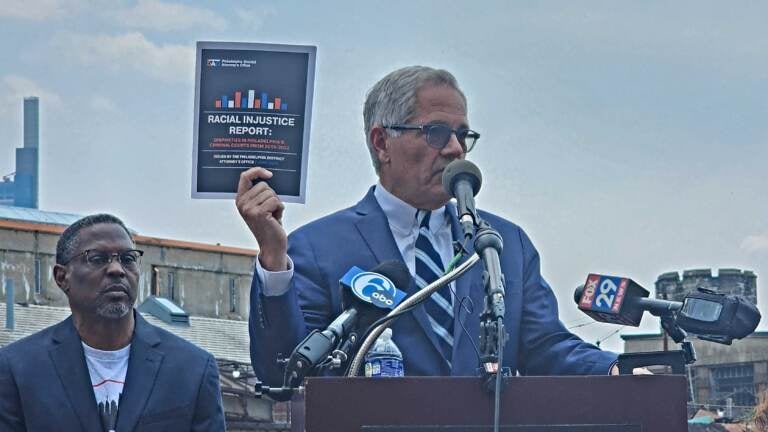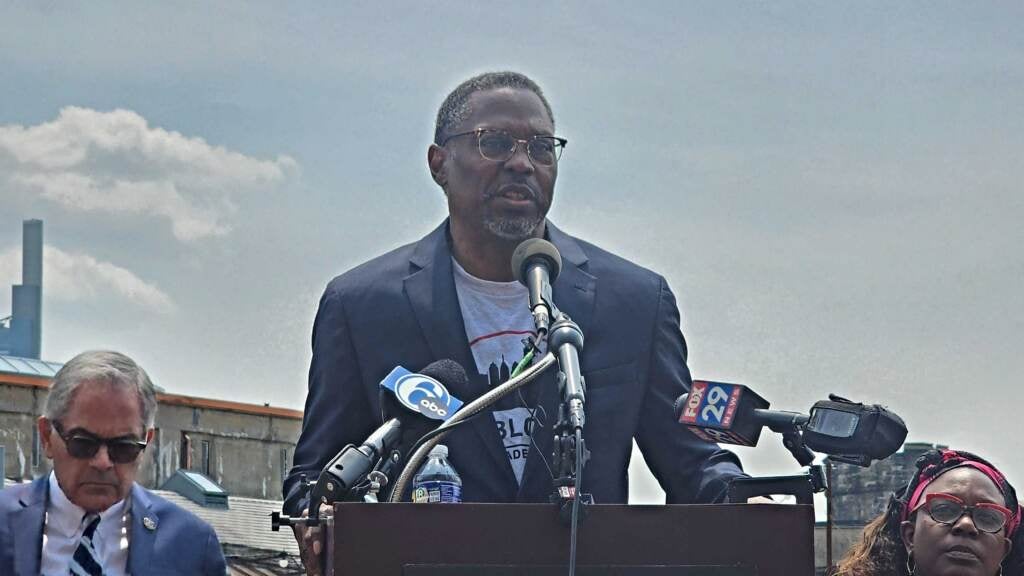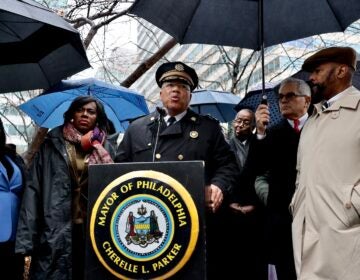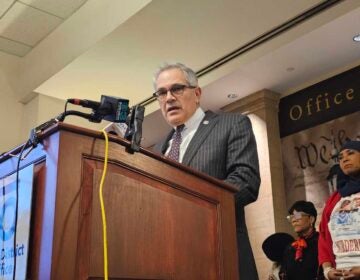New report finds evidence of racial disparity in Philadelphia police stops and sentencing
The DA’s report shows Black and brown Philadelphians are much more likely to be stopped by police and charged.

Philadelphia District Attorney Larry Krasner. (Tom MacDonald/WHYY)
Black Philadelphians continue to be overrepresented in arrests and criminal charges compared to the broader population. That’s one of the key findings in the District Attorney’s Racial Injustice Report issued Monday. Despite increased focus on that disparity in recent years, the DA’s report finds the gap in treatment for Black residents has worsened as a result of federal, state, and local laws and policies.
To produce the report, the District Attorney’s Transparency Analytics Lab “analyzes data and outcomes that are only accessible to criminal legal system partners in order to provide the public with a transparent accounting of how systemic racism and economic inequality continue to present in — and are compounded by — policing, incarceration, and the criminal courts.”
The report found that between 2015 and 2022, Black defendants were charged at a disproportionately higher rate in seven out of the eight most common criminal categories. It also found that Black and Latino residents convicted of aggravated assault or burglary are “more likely to be sentenced to incarceration than white individuals convicted of the same crime.”
“Black Philadelphians made up just under 40% of the population, but nearly 70% of police stops and more than 60% of arrests,” said Wes Weaver of the DA’s analytics unit. “Of those who are stopped, people who are Latinx or Black are frisked and searched one-and-a-half times more frequently than people who are white and three times more frequently than those who are Asian American or Pacific Islander.”
The disparities continue following the arrests.
“Black and Latinx people represent 65% of people sentenced to incarceration. More than 70% of people sentenced to two or more years,” Weaver said.
Rev. Gregory Holston, a senior advisor in the DA’s office, said little has changed in the last century when it comes to equal justice under the law.
“Even things that still exist today, but started in the 1930s, [such as] redlining and other ways of restricting the ability of Black and brown people from having the basic economic freedom and justice we deserve are existent with intentional racism and has created the conditions that we call the inner city today,” he said.

Councilmember Jamie Gauthier is pushing for reparations for Black residents, and said things have still not changed.
“Not only did the government never atone for the original sin of American slavery, but for generations after the Civil War lawmakers enacted and encouraged policies that subjugated Black residents to second-class citizenship,” Gauthier said.
Attorney Michael Coard said the DA’s report highlights the unequal expectations Philadelphia residents have when interacting with the criminal justice system.
“If tomorrow you had to be a defendant in a criminal case and all things are equal. Same job, same education, same neighborhood, same religion, but you had to go to court as a Black defendant or a white defendant. Which one would you choose?” he asked rhetorically.
The DA’s office said researchers had some trouble chasing down data because the city didn’t record the racial categories in some records and systems between legal offices rarely share data. Weaver said that has been resolved.
WHYY is your source for fact-based, in-depth journalism and information. As a nonprofit organization, we rely on financial support from readers like you. Please give today.






